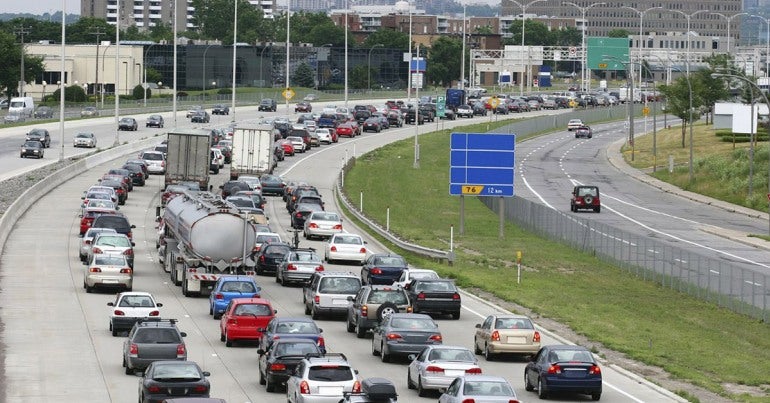 Municipalities are the building blocks of our country, and the bedrock of our daily lives. They are where we live, work and raise families. We all depend on municipal services and infrastructure for our health and well-being, but Canadian cities and towns are facing unprecedented pressures and lack the sound financial footing to meet growing needs. Our municipalities need better revenue sources if we want them to continue to feed Canada’s success.
Municipalities are the building blocks of our country, and the bedrock of our daily lives. They are where we live, work and raise families. We all depend on municipal services and infrastructure for our health and well-being, but Canadian cities and towns are facing unprecedented pressures and lack the sound financial footing to meet growing needs. Our municipalities need better revenue sources if we want them to continue to feed Canada’s success.
Many Canadian municipalities are struggling to pay for the infrastructure and services their residents need to have a decent quality of life. Cities and towns are on the front lines of many challenges, such as climate change, the widening gap between rich and poor, and an aging population. Over the last two decades, senior levels of government have downloaded more responsibilities to local governments, but often without the necessary funds to pay for them. Municipalities in Canada still depend primarily on property taxes and user fees to pay their bills. These revenues weren’t designed to support the types of services modern-day municipalities provide, and aren’t based on ability to pay.
At a local level, municipal leaders are thinking creatively about how they support and build their communities through new revenue sources. Leaders, experts, and citizens are joining together on regional and national stages to put forth a range of proposals. These include new municipal revenue-raising powers, as well a municipal share of sales, fuel and income taxes.
“We actually have a pretty good vision of what we’re trying to build: communities, neighbourhoods, transportation systems, clean water, fire and police. My hope for 25 years from now is that we’ve gotten on top of this mountain of infrastructure, instead of forever staring at it.” Naheed Nenshi, Mayor of Calgary (The Globe and Mail, March 14, 2013).
This toolkit is designed to start a conversation about how we finance our cities and towns in fair and sustainable ways. In these pages, you will find:
- a snapshot of the challenges municipalities face;
- a summary of the basic elements of municipal finance, and key questions to ask when evaluating whether revenue tools are fair and equitable for all residents; and
- a review of nine current and potential municipal revenue sources.

